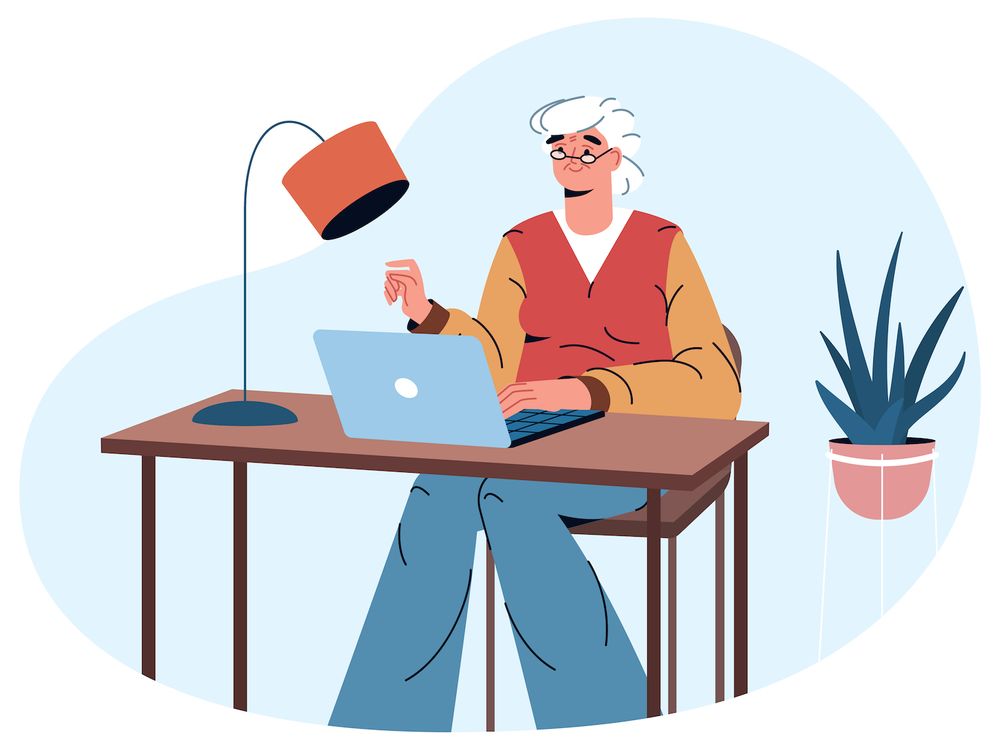The charming film put the "art" in artificial intelligence.
What do you get when you combine the power of an AI image generator, an 98-year-old woman called Lillian, and Harry Potter? It's called 'HAIRY POUTER is a film of a shorter length made by director Chris Carboni. It layers increasingly whimsical AI-generated imagery along with a comments on the classic novel by a hilarious nonagenarian.
"Lillian is my grandmother," says Chris. "She and I have always enjoyed a great relationship and I've been recording her reviews for about 10 years."
As AI image generators started to dominate the web around mid-2022, Chris saw the stars meet to create a project that could leverage his hours of audio and assist him in exploring the relationship he has with this new technology. "I was surrounded by conflicted feelings about [these generatorsthat I wanted to explore] and was searching for an opportunity to learn about them a little bit," explains Chris. "At the same time I was having a conversation with my grandmother , who was just reading Harry Potter that I bought for her for her birthday as a gift."
The film began to come together thanks to a fast crew "my grandmother along with my wife and me, as well as our composer and sound designer, that was the full team" - - and the rest of it is (futuristic) the story of. With the power of AI continue to evolve at the speed of light, we caught up with Chris Carboni to talk the world of AI and art.
The imagery that you see in this video is amazing. What were you using to get it to give you these result?
Chris: Then we tried MidJourney as it was in the first version. The first step was to enter the words of Lillian's without editing and checking what it would generate from the only quotes of the interview. We were awestruck by the art style it had come up with through just a few rounds of making new images. So, I wrote down some hallmarks of the artistic direction that was based on this photo it created.
The first picture we saw was Ron who was wafting his hair, and he looked amazing. It was a bit of shoulders up and the guy clearly did not have a shirt on. The guy looked as if he was a sea god. And then when we had the opportunity to capture Harry and Ron together, it posed they were almost hugging and we thought, "Oh, this is incredible."
It was up to the AI to develop these intriguing interpretations, and when we hit on one that we liked, we guided the AI to follow that line, so that it would remain entertaining, and easy to follow.
What was it like applying AI to this actually human story?
Chris: At the time I created this film I was a bit of anxiety [about AIin general]. It was a pleasure having it in this film. It was, in my opinion, an excellent use-case for the project because the application of AI was fundamental to the narrative.
It was enjoyable, fascinating and memorable. It was kind of about the clumsy but charming connection between AI and human beings. The project was not one in which we decided not to spend a budget on illustrators and decided to employ artificial intelligence instead. This was a project in which the application of artificial intelligence was essential to the story telling.
How do you feel about AI entering the creative space?
Chris Chris compelling there, but it's become a lot more complicated since now these generators are used in a wide variety of ways. They've been fully unleashed and extended to all of these different applications. The subject has become a lot more difficult than I felt like it once was from my personal knowledge and opinions about the subject.
I think that anybody who works in a creative environment must find out the implications of this to their job, and be prepared to accept the fact that things will likely alter. With that change comes bring opportunities to create amazing innovations, as well as the automation of a lot of the work we artists admire. This makes me sad, but I'll be honest. It worries me that art will be reduced in value and becoming more expensive than it is already.
Do you think that this tech could be used to help you in the near future?
Chris: Well I am a huge fan of making use of AI to improve my email and also as a personal assistant that can answer questions, giving explanations to complex concepts, and handling rote jobs. In terms of creative work though, I don't fully know. I don't intend to utilize it to the extent which would substitute human talent in my team. The results aren't as great.
A large part of the work we do comes from collaborating with people. A project produced from start to finish using AI relies on the inputs coming from a person's mind. Some cases may be great, but generally speaking the productions are aided by a team of specialists who work together, each with their own unique expertise as well as creative ideas to the table.
The most appealing use-cases I can think of are to generate initial ideas, and kicking off the creative process. Perhaps for raising funds for an idea and displaying an initial idea for getting something off of the starting point. However, for animation, you need so much control over the details of the scene in terms of production and artistic reasons. The level of control you need is likely on the way, but it's certainly not quite there yet.
